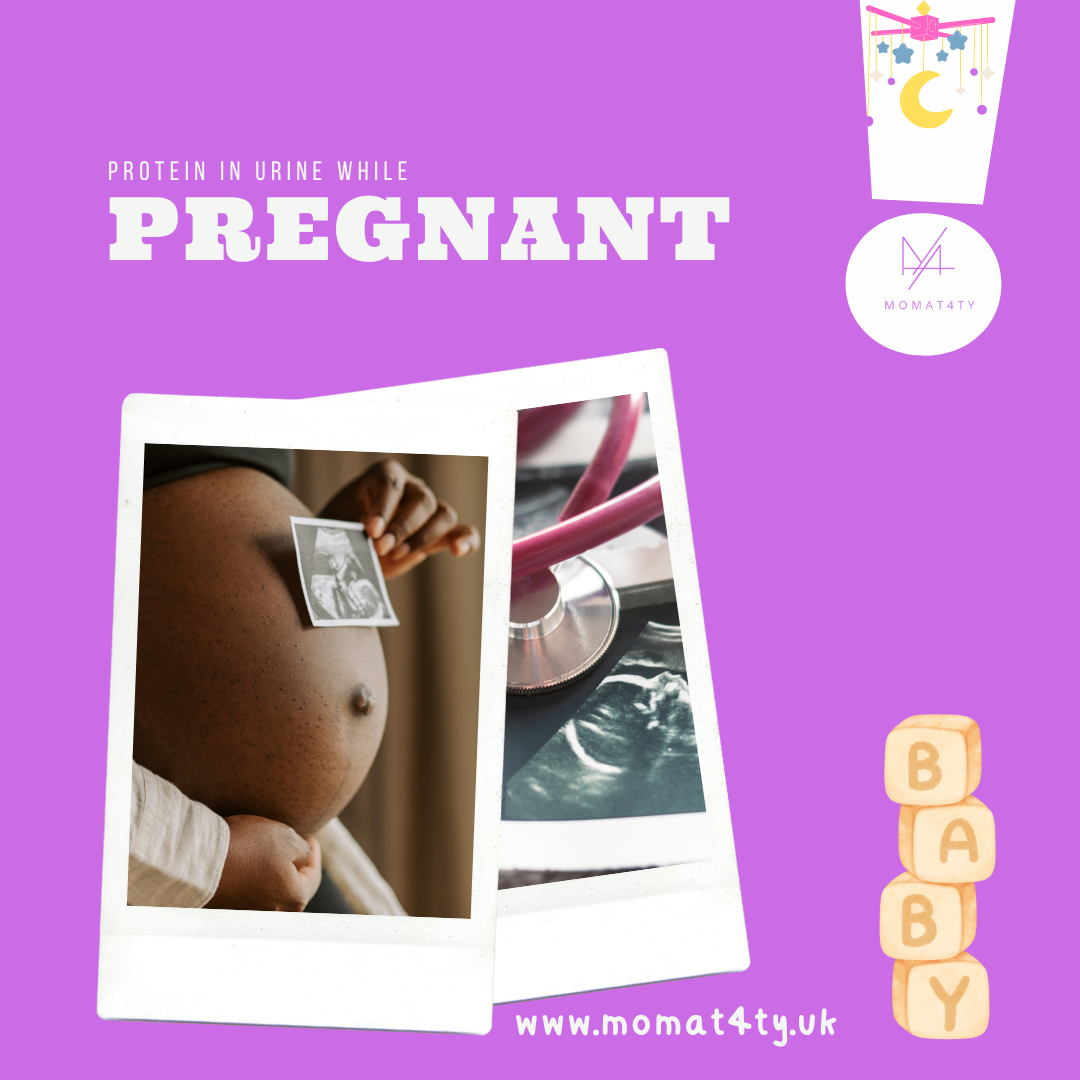Pregnancy is a journey filled with changes, challenges, and checks.
For older mothers, this journey requires close attention to various health indicators, one of which is the presence of protein in the urine, medically known as proteinuria. Understanding what proteinuria means, why it’s significant, and how to manage it is crucial for the health and well-being of both the mother and the baby.

What is Proteinuria?
Proteinuria is the presence of an abnormal amount of protein in the urine. During pregnancy, the kidneys must process more blood than usual—a 50% increase in blood volume is typical. This increase can sometimes lead to proteins, primarily albumin, leaking into the urine. While a small amount of protein in urine can be normal during pregnancy, excessive protein can be a sign of potential complications.
Why is Proteinuria a Concern for Older Pregnant Women?
For older pregnant women, typically those aged 35 and above, the body faces more significant challenges due to changes that come with age. These changes can increase the risk of pregnancy-related complications, making the monitoring of conditions like proteinuria more critical. Proteinuria in older pregnant women can be an early sign of preeclampsia, a pregnancy complication characterized by high blood pressure and signs of damage to another organ system, most often the liver and kidneys.

The Importance of Regular Checks
This is why regular prenatal checks are vital, especially for monitoring conditions like proteinuria. These checks can help catch early signs of preeclampsia or other kidney-related issues that are more common in older pregnant women. Prenatal visits should include a urine test to measure protein levels, which helps assess the mother’s kidney function and overall health status. Understanding this means asking your doctor to ensure s/he checks for this at all your prenatal visits – be proactive!
Because for us, Nigerian women, accessing consistent prenatal care can be challenging due to various factors such as geographical limitations, economic barriers, and limited healthcare resources. However, understanding the importance of these checks can encourage you to know the questions to ask to keep you and your pregnancy safe through your trimesters.
Challenges in Management and Care
One of the primary challenges in managing proteinuria during pregnancy is detecting and addressing it early. This requires you to understand and be aware of the symptoms of preeclampsia, which include
i. severe headaches
ii. changes in vision
iii. upper abdominal pain
iv. and sudden swelling of the face, hands, and feet.
Another challenge is the variability of proteinuria. For some, the condition may be transient and not indicate a severe issue, while for others, it may signal more significant complications. Differentiating between these requires professional medical evaluation and sometimes, further testing.

How to Manage Proteinuria
- Regular Monitoring: Attend all your prenatal appointments and get urine tests as recommended by your doctor. If they don’t do these tests, insist they do, I did so likewise.
- Healthy Lifestyle: Maintaining a healthy diet and adequate hydration can help manage proteinuria. Reducing your salt intake and avoiding excess protein (meat, beans etc) consumption are also beneficial.
- Managing Underlying Conditions: Keeping conditions like hypertension and diabetes under control can reduce the risk of developing proteinuria. Hence the need to have a general test while pregnant to ensure you do not have any of these underlying health issues.
- Education and Awareness: Understand the signs and symptoms of related complications like preeclampsia as this will empower you to seek help promptly. This is why it is essential to follow our social handles and subscribe to our blog – read our articles, it will educate you on what to expect on your pregnancy journey.
- Community Support: Leveraging community resources such as local health clinics, maternity centers, and community health workers can provide additional support and information. Being a Nigerian here helps as our mothers, aunties and sisters are a great resource for getting first-hand information and support through your pregnancy journey. You can also join WhatsApp groups for older pregnant moms (look out for our app).
For the older mom, managing health during pregnancy means being vigilant and informed. Understanding the implications of proteinuria and regularly communicating with your doctor and caregivers is essential to ensure you and your baby remain healthy. While challenges exist, managing proteinuria is possible through consistent care, awareness, and support. Let us advocate for better prenatal care accessibility and educate ourselves and others about these critical health markers.
So share this article with a pregnant mom (older or younger) you think will benefit from this!

